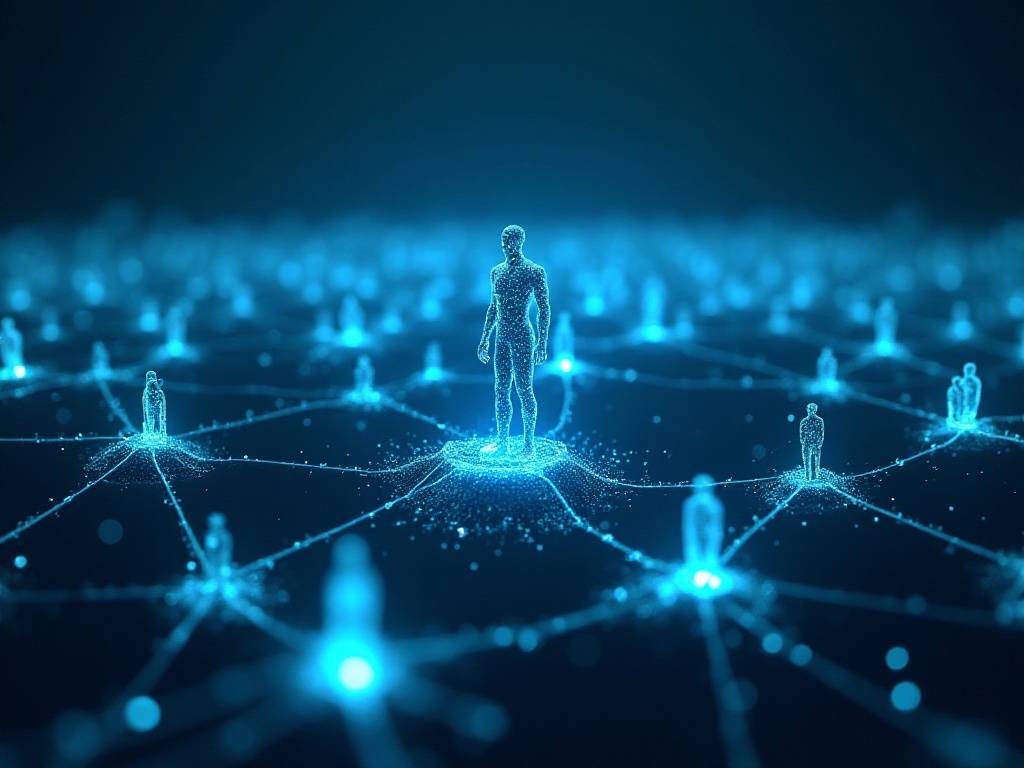Opening Thoughts
Recently, all my friends have been discussing ChatGPT - it's an incredibly hot topic. I've seen computer science students using it to find bugs, friends preparing for studying abroad using it to practice IELTS speaking, and even designers using it for creative inspiration. As a blogger who has been studying AI since undergraduate years, I'm truly impressed by ChatGPT. The first thing I do every morning is open ChatGPT to see what new possibilities I can discover.
To be honest, ChatGPT has a certain magic to it - unlike other AI tools that feel cold and rigid, it gives you the feeling of chatting with a friend. Sometimes when I encounter work challenges, I casually ask it a few questions, and it actually provides some reliable suggestions - the experience is incredibly satisfying. Most amazingly, it seems to never tire of your questions; no matter what you ask, it responds thoughtfully, like having a 24/7 on-call assistant.
Beginner's Guide
When I first used ChatGPT, honestly, I was completely lost. The interface looked simple, but I didn't know how to ask questions to get good responses. After some time exploring, I finally found some techniques that I'd like to share with everyone today.
Let's talk about ChatGPT's interface - it's minimalistic to the extreme. Just a dialogue box with chat history above and an input box below, requiring no time to get used to. I think this design is particularly clever, as natural as chatting on WeChat. I have a friend who's not tech-savvy and can barely use Excel, but picked up ChatGPT very quickly, which shows how well-designed the interface is.
There's quite a bit of technique involved in how to converse with ChatGPT. Writing prompts is truly an art. At first, I was very casual, just saying a few words, and ChatGPT's responses often missed the point. Later, I discovered that talking to ChatGPT requires speaking "human language" - the more specific, the better.
For example, instead of simply asking "how to improve English," it's better to say "I'm a college student with average English skills, a vocabulary of about 3,000 words, aiming to achieve a TOEFL score of 100 in six months. Please create a detailed study plan including daily time arrangements, specific learning material recommendations, and study method suggestions." Asked this way, ChatGPT can provide very targeted advice.
Another tip is learning to guide ChatGPT. If you feel its answer isn't detailed enough, you can ask "Could you elaborate on that?" If it's too technical, you can say "Could you explain that in simpler terms?" It's like talking to a very smart but somewhat rigid friend - you need to learn to guide it to answer in the direction you want.

Advanced Techniques
Speaking of advanced uses of ChatGPT, what I find most amazing is its role-playing ability. This feature is truly game-changing. Once, on a whim, I had ChatGPT play the role of a senior product manager to review my product proposal. Surprisingly, it not only pointed out logical flaws in the proposal but also provided suggestions from multiple angles including user experience and market positioning - performing better than several product managers in our company.
For instance, I had a friend preparing to switch jobs and looking for work at a major internet company. I suggested using ChatGPT for mock interviews. We had ChatGPT play both technical interviewer and HR interviewer roles, designing a series of interview questions. Through repeated practice, my friend not only prepared thoroughly for common interview questions but also developed clearer response strategies. In the end, he successfully received an offer from his desired company.
In terms of data analysis, ChatGPT is equally impressive. Once our department needed to conduct user research, collecting about 2,000 user feedback responses. The traditional approach would have required three or four people working for a week to organize it all. When I tried using ChatGPT for analysis, it was completed in just half a day. It not only helped us categorize and organize the feedback but also summarized several key user pain points and even provided some improvement suggestions. The efficiency was simply incredible.
Another particularly fun application is using ChatGPT for creative brainstorming. Once when our team was discussing a name for a new product, everyone was stuck for ideas. I had ChatGPT play the role of a creative director, setting certain conditions like being catchy, tech-savvy, and memorable. It provided a bunch of suggestions, and while not all were usable, they definitely gave us inspiration. The final product name actually evolved from one of ChatGPT's suggestions.

Practical Applications
In education, ChatGPT is truly an all-around teacher. I've been self-learning Japanese recently and often use ChatGPT for conversation practice. It not only corrects my grammar mistakes but also provides authentic expressions based on different scenarios. For example, I had it play the role of a Japanese convenience store clerk for shopping dialogue practice. It used appropriate honorific language and even taught me about cultural customs in Japanese convenience stores, creating an excellent immersive learning experience.
For workplace applications, I have so much to share. Take weekly reports, for instance - they're annoying, required every week, and you need to make simple work sound substantial. Later I discovered I could tell ChatGPT the basic work content, let it help organize the language, and then make modifications based on actual circumstances. This not only saves time but also produces very professional reports.
As for meetings, ChatGPT is now my essential meeting companion. Whether it's pre-meeting preparation or post-meeting summaries, I rely on its help. Before meetings, I tell it the meeting topic and have it list discussion points and potential issues. After meetings, I briefly describe the content and have it help organize the minutes. This not only improves meeting efficiency but also ensures no important information is missed.
In terms of document writing, ChatGPT is also excellent. Whether it's product requirement documents, technical proposals, or project summary reports, it can help you organize the framework and enhance content. My current approach to writing documents is to first tell ChatGPT the core content, let it generate a draft, and then modify and supplement based on actual needs. This ensures document completeness while greatly improving writing efficiency.

Future Outlook
Honestly, watching ChatGPT's development over the past year has been truly stunning. I remember when it first started, it could only handle simple text conversations, but now it can understand images, process data, and even engage in multimodal interaction. The progress speed is faster than a rocket.
I believe future AI assistants will be far more than what we see today. Imagine, perhaps in a few years, each of us will have a personal AI assistant. It will understand your personality, know your habits, and comprehend your preferences. In the morning, it can arrange your day's work based on your schedule, automatically record and organize key points during meetings, and help polish your writing style in reports.
Even cooler, this AI assistant might become a good companion in your life. It could recommend music based on your mood, suggest food based on your taste, and even offer comfort and advice when you're feeling down. It won't be a cold machine, but rather an intelligent companion who truly understands you.

Final Thoughts
Through this period of in-depth use, I increasingly feel that ChatGPT is like having a personal assistant for each of us. It not only helps us handle daily work but also stimulates our creativity, making our work and life more efficient and interesting.
Most importantly, ChatGPT has shown me that AI's true value isn't in replacing humans, but in enhancing human capabilities. It's like giving each of us a super brain, enabling us to think better, learn faster, and work more efficiently.
This is the most fascinating aspect of AI technology - it's not here to take our jobs, but to help us perform better in them. So rather than worrying about AI replacing humans, we should think about how to use AI to improve ourselves and become stronger.
Share your thoughts - how do you use ChatGPT? Do you have any particularly useful tips? Or what are your expectations for AI's future? Let's discuss and grow together.




